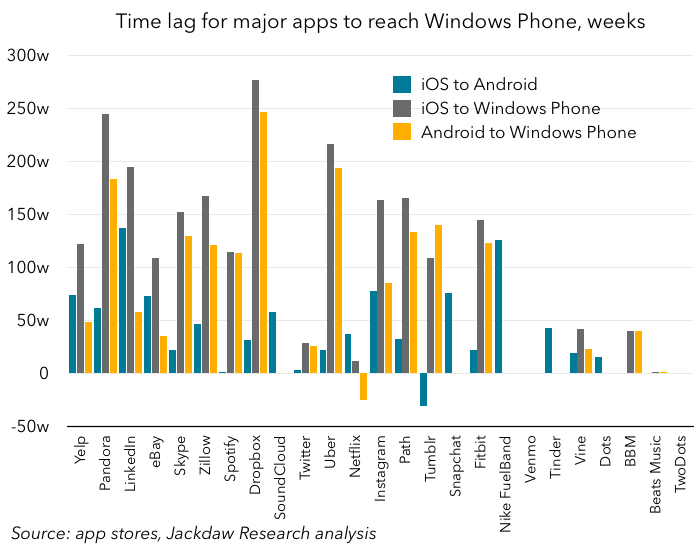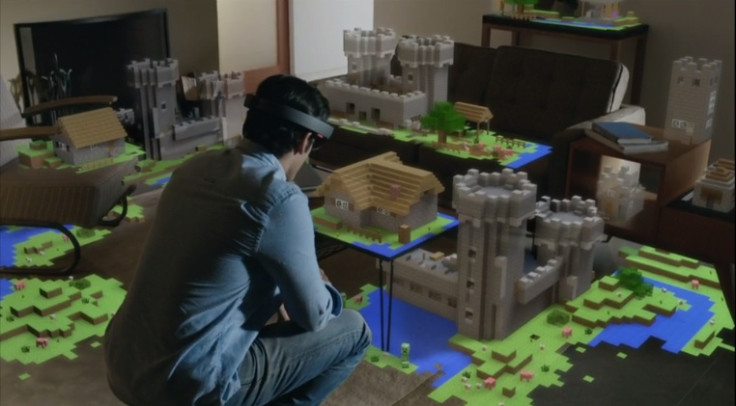Why Windows 10 is not the answer to Microsoft's smartphone woes

Microsoft held a major press event on Wednesday (21 January) to showcase Windows 10. Yet reading headlines across the internet on Thursday morning you would have been forgiven for thinking the only thing launched was its future-gazing HoloLens headset.
The unexpected arrival of Microsoft's augmented reality goggles certainly took most people by surprise but what is of more immediate importance for the company is its plans to boost its smartphone market share - a market it entirely missed first time around leaving it playing catch-up to Apple and Android.
If we look past the shiny new toy, and focus on Microsoft's smartphone plans then we see that Microsoft's latest mobile restart lacks a convincing argument for it to succeed, especially in a hugely crowded market.
There are only so many times you can reset and start again. Microsoft has done it more than most in the mobile market and after the complete failure of Windows Mobile, relative failure of Windows Phone, it has to get Windows 10 right on smartphones if it wants to have a chance of grabbing a slice of the hugely lucrative smartphone market.
What Microsoft showed us on Wednesday looked great. Tweaks to the interface looked like steps in the right direction, the addition of Spartan browser is great, integrated messaging has real potential and of course Universal Apps really do show the power of Windows 10 to seamlessly integrate across all your devices.
Conversion
But getting the look and feel of Windows on smartphones right has never been the issue for Microsoft. As Richard Edwards, principal analyst with Ovum, told IBTimes UK, the problem Microsoft has with Windows is "very much one of perception".
People just don't seem Microsoft as a smartphone company and they certainly don't see Windows as a smartphone operating system.
To try and change that, Edwards suggests Microsoft will have to use what it is known for to convert customers:
"Microsoft is having to address market perceptions rather than the experience of using a Windows Phone." Edwards says Microsoft will need to leverage the interest around Windows 10 on PCs and tablets and use that to get people using Windows on smartphones.
One of the key selling points of iOS and Android is that they have "all the apps". Windows Phone on the other hand doesn't and as you can see in the graph on below, getting developers to build apps for its platform has so far proved an up-hill struggle.

Windows 10 is designed to improve that significantly as its shared codebase will allow developers write their code once and publish on a huge variety of platforms.
"I think the key message to developers was that if you invest time and effort in building an app for Windows, then your opportunities to monetise that now stretches across smartphones, tablets, game console as well as the PC," Edwards said.
Clearly having a common experience across PC, tablet and smartphone is Windows 10's big selling point.
Jeremy Davies from Context says:
"The key is to have the same experience transitioning from desktop to portable to mobile. Nobody has done this yet, including Apple. If Windows 10 truly does allow users to have a seamless transition across their devices, then Microsoft will have a huge advantage and yes, this could possibly sway people away - over a number of years - from Android, but most likely less for iOS users. As I have said in the past, Microsoft is a vast company with vast resources and eventually, they do get it right. Windows 10 could be that moment."
The problem with this "advantage" is that it will be applicable to only a small portion of customers who own a Windows 10 PC, Windows 10 tablet and Windows 10 smartphone.
Love me
Microsoft CEO Satya Nadella spoke during the event about how Microsoft needs to make Windows a product not that people need, but one they want, and ultimately one that they love.
Jan Dawson, chief analyst at Jackdaw and writing for Techpinions, believes that while this is a admirable ambition, it is not really an achievable one:
"As a goal, I think this is laudable and appropriate for Microsoft – it's a great rallying cry internally, apart from anything else. But as it applies to Windows specifically, I think the biggest challenge is that no one loves their operating system."
No one loves Android and despite what some would have you believe, no one loves iOS either - and yet both are hugely successful.
People may love the smartphones that use these operating systems but this is because it connects them with their family and friends and gives them access to the unending feed of news, entertainment and information that the world wide web offers.
HoloLens shows Microsoft is innovative

Dawson says that while Microsoft is unlikely to get consumers to "love Windows" in the way Nadella spoke about, its unveiling of HoloLens was a smart move in getting people to shift their perceptions of Microsoft:
Getting consumers to engage with those experiences means changing their perceptions of what kind of company Microsoft has become. To that end, I think Wednesday's unveiling of HoloLens and Windows Holographic is hugely important in building a narrative that Microsoft is a technology company that can truly innovate and bring new experiences to market.
There is no question that Microsoft is seen as a old tech company, one which missed the smartphone revolution first time around and which is now playing catch up in the mobile computing space. It is seen - especially by younger generations - as an enterprise-focused company which is out of touch with the Android and iOS generation.
On Wednesday however, Nadella was a footnote to a presentation which was big on Windows 10 integration with Xbox and the surprise unveiling of HoloLens grabbed headlines across the world.
Microsoft is clearly looking to change its image, leveraging brands like Xbox to make younger audiences aware of what Windows 10 is, and what it can do. With HoloLens Microsoft has successfully gotten the world talking about it in the same way it does with Google's latest moonshot term.
While this may prove successful in the long term, by the time people finally think Microsoft is cool, the smartphone market could once again have moved on.
© Copyright IBTimes 2025. All rights reserved.






















